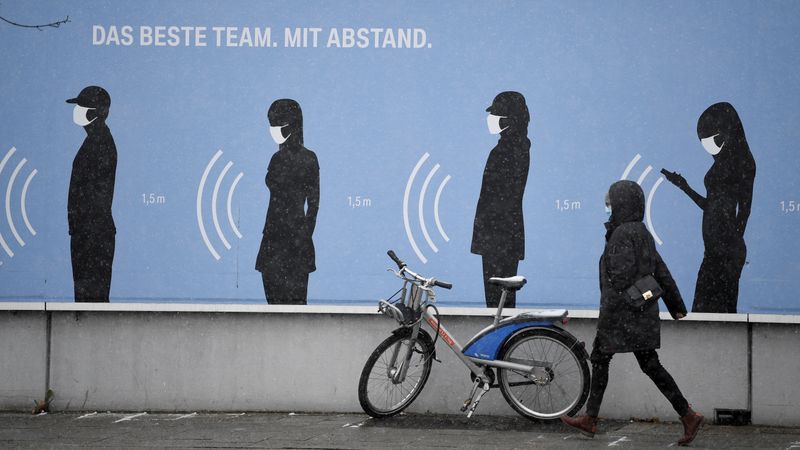BRUSSELS (Reuters) – Economic sentiment in the euro zone ticked up last month but inflation held in negative territory before what is likely to be a slow rise this year as some tax cuts are reversed, oil prices rise and the economy starts to recover.
Inflation in the 19 countries sharing the euro was unchanged at minus 0.3% in December, Eurostat data showed on Thursday, underperforming analyst expectations for a minus 0.2% reading but broadly in line with the European Central Bank’s own projections.
With the economy likely shrinking again in the fourth quarter and inflation below zero since August, the ECB already approved a new package of stimulus measures in December, extending copious asset buys well into 2022 to insulate an economy likely to face permanent damage from the pandemic.
Its measures are expected to keep borrowing costs record low for years to come, providing crucial support just as the bloc faces even stricter lockdown measures with governments shutting down much of the services sector over fears that a fresh wave of coronavirus infections could overwhelm heath care system.
Still, economic sentiment edged up to 90.4 points in December from 87.7 in November, against expectations of a rise to 90.0 points, a European Commission monthly survey showed.
The better reading was mainly thanks to an improvement in industry to -7.2 from -10.1 and among consumers to -13.9 from -17.6 points.
Thursday’s inflation reading could be the last negative figure in the current cycle as a temporary German value added tax cut expired at the end of 2020 and crude oil prices are up around 45% since the start of November.
The ECB expects inflation to rise to 0.3% in the first quarter, then to 1.5% by the fourth quarter as activity restarts and weak year earlier figures get knocked out from base figures.
Still, inflation, which has undershot the ECB’s nearly 2% target since 2013, is likely to dip again next year and will not approach the bank’s objective for years to come as the recover from the pandemic will be protracted.
Separately, Eurostat said euro zone retail sales plunged much more than expected in November as countries across Europe began to re-introduce pandemic restrictions. The sales falls were deepest in Belgium and France which imposed the toughest measures early.
Euro zone retail sales dropped 6.1% month-on-month for a 2.9% year-on-year fall. In Belgium the monthly drop was 15.9% and in France 18.0%. Economists polled by Reuters had expected euro zone retail sales to fall 3.4% on the month and rise 0.8% on the year.
(Reporting by Jan Strupczewski and Balazs Koranyi; editing by Philip Blenkinsop and Toby Chopra)



















